Dogs interpret the world much differently than humans do. Gaining a clearer picture of dog culture and "how dog's work” will greatly enhance your relationship with your dog.
Awareness, understanding and Positive Reinforcement Training are pathways to success in your relationship with your dog.
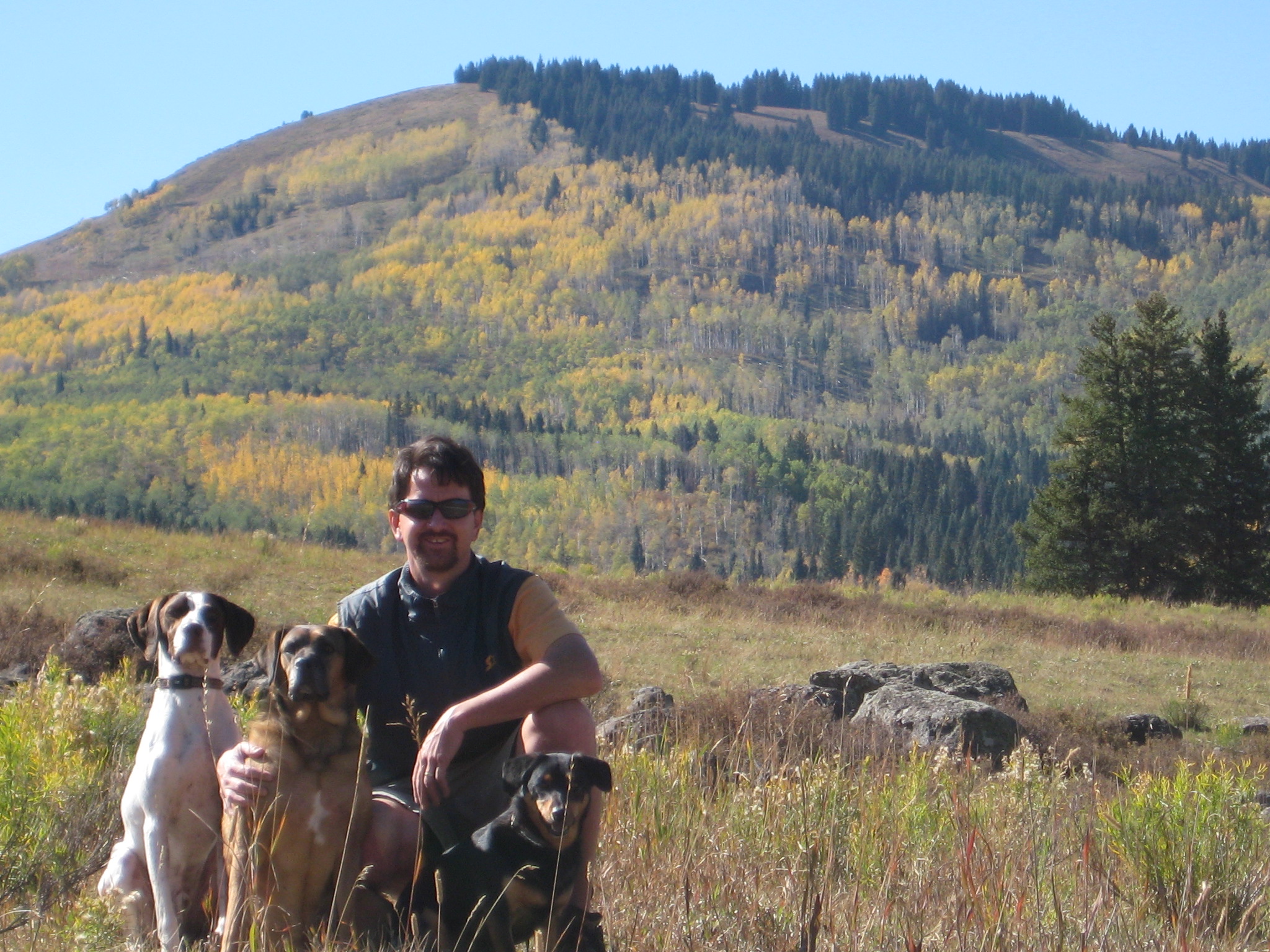
HONOR THE DOG.org
Canine
Education
You-tube description
As with any dog, Pinto had to earn his freedom. After being trapped in a poor and neglectful environment, he suddenly found himself in a new home. This video, metaphorically, depicts his climb to a place of balance, strength, and joy.
Click here to view this video on You-tube.
As with any dog, Pinto had to earn his freedom. After being trapped in a poor and neglectful environment, he suddenly found himself in a new home. This video, metaphorically, depicts his climb to a place of balance, strength, and joy.
Click here to view this video on You-tube.


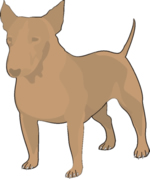


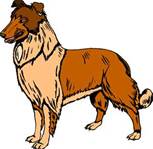
Properly setting rules and boundaries through improved communication and the effective use of well “proofed" skills like “sit”, “stay”, “watch me”, “wait” “heel” and “leave it” will give your dog the structure that s/he needs and provide you with the connection and control that you desire.
As your relationship becomes stronger you will discover that your dog will work harder for you and feel more closely bonded to you.
Marc Miller
Basic Dog
Dogs live in the moment.
Literally a 2 second time frame. Desired behaviors must be rewarded immediately for it to have any effect. Negative behavior issues must be corrected immediately. Many times before the average person sees there is a problem. It is ineffective to reprimand a dog for something s/he did even if it was just a few seconds ago.
Don’t understand voice communication
Dogs use very little voice communication and, not unlike children, they need to be taught the meaning of the words that you use with them. Dogs learn very quickly through the association of body language, emotion and the end result whether a specific tone means good things for them, or bad things. Using the same word and the same tone consistently in the same context will help your dog understand its meaning.
Results oriented
Dogs are very self-interested and don’t have the desire to please the way many of us believe they do. They are amoral. There is no right or wrong only safe vs. dangerous and they are, like humans, results oriented. They will repeat any action that leads to a successful outcome, and they will avoid actions that have unrewarded or unpleasant consequences. For example, if an attention seeking dog is successful gaining your attention by barking or jumping up on you they will continue to do so. If that same behavior is being ignored they will stop. What behaviors are you rewarding?
Absolute experts in reading body language and energy
Dogs are constantly observing body language, facial expressions and energetic disposition. Your dog is acutely aware of how you are feeling the second you walk into the room (often times before) and they always know the emotional states of everyone present. Dogs see negative energies like fear, anger, frustration and sympathy as weak energies and do not respond well to them. These energies undermine our dog’s emotional wellbeing and they will not follow these energies. Alternatively they will gravitate toward calm, confident and self -assured energies. What energy are you projecting? What is your body language telling your dog? Being aware of the messages that we are sending our dogs through our body language and energy is imperative if we are to experience success in both our training and our relationship.
Strong sense of injustice
All dogs are ingrained with a strong sense of injustice. The importance of fair conduct with them in all dealings cannot be understated. Any negative approach to training will only lead to a breakdown in trust, resentment and fear.
Highly social
Dogs are pack oriented animals. They have a very strong instinctive desire to be a part of a group or pack. Preferably a group of other dogs but humans will do. Dogs have a strong tendency to form social bonds and don’t cope well with isolation.
Resolve conflict through aggression
There is a very strong stigma attached to dogs that bite. They are often looked upon as having some sort of character flaw. The fact is biting is a natural, normal behavior in dog culture. This is why biting is so prevalent. Biting and threat displays (growls, snarls and snaps) are how dogs settle minor and major disputes and it’s how they defend themselves from a perceived threat that they cannot or choose not to flee from. Aggression does not fracture relationships in dog society. The problem is that aggression often changes things in the human-dog relationship. Sadly, dogs that bite are routinely put down.
Other things we know about dogs:
• Small capacity for reasoning and thought. Dogs cannot be defiant! If your dog is not responding to you they lack sufficient training or they are not properly motivated.
• They do not hold grudges or plot revenge.
• Inability to fake emotion.
• Strongly wired predatory behaviors (search, find, stalk, chase, grab and hold, dissect, chew).
• Opportunistic and Keen scavengers with highly developed olfactory system.
• Everything is a chew toy (no concept of articles, tokens or symbols).
• Dogs love adventure and are curious by nature
Dogs live in the moment.
Literally a 2 second time frame. Desired behaviors must be rewarded immediately for it to have any effect. Negative behavior issues must be corrected immediately. Many times before the average person sees there is a problem. It is ineffective to reprimand a dog for something s/he did even if it was just a few seconds ago.
Don’t understand voice communication
Dogs use very little voice communication and, not unlike children, they need to be taught the meaning of the words that you use with them. Dogs learn very quickly through the association of body language, emotion and the end result whether a specific tone means good things for them, or bad things. Using the same word and the same tone consistently in the same context will help your dog understand its meaning.
Results oriented
Dogs are very self-interested and don’t have the desire to please the way many of us believe they do. They are amoral. There is no right or wrong only safe vs. dangerous and they are, like humans, results oriented. They will repeat any action that leads to a successful outcome, and they will avoid actions that have unrewarded or unpleasant consequences. For example, if an attention seeking dog is successful gaining your attention by barking or jumping up on you they will continue to do so. If that same behavior is being ignored they will stop. What behaviors are you rewarding?
Absolute experts in reading body language and energy
Dogs are constantly observing body language, facial expressions and energetic disposition. Your dog is acutely aware of how you are feeling the second you walk into the room (often times before) and they always know the emotional states of everyone present. Dogs see negative energies like fear, anger, frustration and sympathy as weak energies and do not respond well to them. These energies undermine our dog’s emotional wellbeing and they will not follow these energies. Alternatively they will gravitate toward calm, confident and self -assured energies. What energy are you projecting? What is your body language telling your dog? Being aware of the messages that we are sending our dogs through our body language and energy is imperative if we are to experience success in both our training and our relationship.
Strong sense of injustice
All dogs are ingrained with a strong sense of injustice. The importance of fair conduct with them in all dealings cannot be understated. Any negative approach to training will only lead to a breakdown in trust, resentment and fear.
Highly social
Dogs are pack oriented animals. They have a very strong instinctive desire to be a part of a group or pack. Preferably a group of other dogs but humans will do. Dogs have a strong tendency to form social bonds and don’t cope well with isolation.
Resolve conflict through aggression
There is a very strong stigma attached to dogs that bite. They are often looked upon as having some sort of character flaw. The fact is biting is a natural, normal behavior in dog culture. This is why biting is so prevalent. Biting and threat displays (growls, snarls and snaps) are how dogs settle minor and major disputes and it’s how they defend themselves from a perceived threat that they cannot or choose not to flee from. Aggression does not fracture relationships in dog society. The problem is that aggression often changes things in the human-dog relationship. Sadly, dogs that bite are routinely put down.
Other things we know about dogs:
• Small capacity for reasoning and thought. Dogs cannot be defiant! If your dog is not responding to you they lack sufficient training or they are not properly motivated.
• They do not hold grudges or plot revenge.
• Inability to fake emotion.
• Strongly wired predatory behaviors (search, find, stalk, chase, grab and hold, dissect, chew).
• Opportunistic and Keen scavengers with highly developed olfactory system.
• Everything is a chew toy (no concept of articles, tokens or symbols).
• Dogs love adventure and are curious by nature
.
email: honorthedog@comcast.net
Positive Reinforcement is the key to developing your dog into the happy, healthy,
emotionally and socially balanced being they were born to be.
To restart slideshow refresh page
Treedog
What is Treedog?
Treedog is an analogy. Click on links and learn how to grow your dog...
Treedog is an analogy. Click on links and learn how to grow your dog...
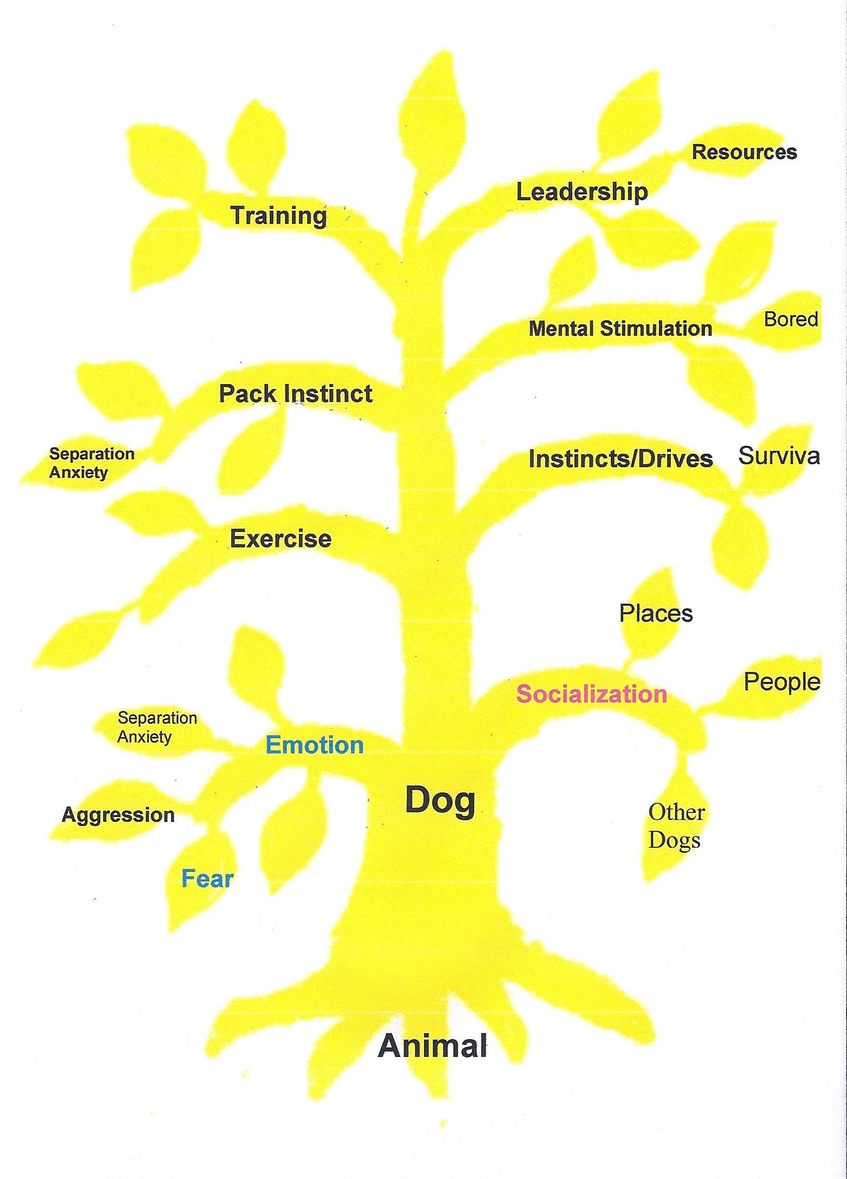

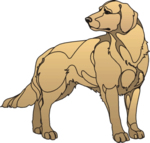
Training your dog is a lifelong process. You’re never “done” with your training. There is so much you can teach your dog and we already know the importance of keeping them from getting bored. Continue to challenge your dog and if he is acting up, pick up your leadership, improve your relevance training and schedule regular training sessions. Good K9 leaders keep thinking, learning, and developing their physical timing skills.
Dogs are encumbered by very poor generalization skills. It's important to practice in varying environments. This being an unfamiliar space with a few obstacles, Pinto struggles a little with his reverse heel command. But notice how he checks his environment, regains body position, then checks right back in with his handler.
Watch this video on You-Tube
Watch this video on You-Tube

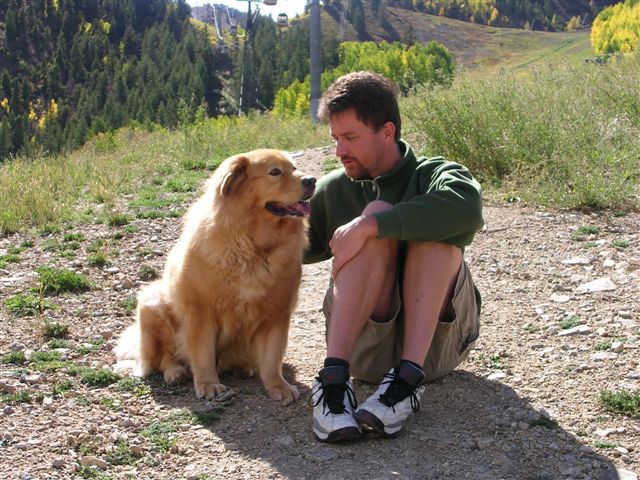
Dogs have served humans for centuries with courage, loyalty and affection.
However, humans have not always been kind in return.
Millions of puppies and adult dogs loose their lives each year due to irresponsible pet parenting and inadequate training. Many more exist in an environment filled with confusion and misunderstanding.
Bringing a new dog into our home exposes them to a foreign world with no way of knowing the rules and no understanding of “how things work”. Their attempts to navigate this strange new land often puts them in a position of doing something wrong (according to us) and is more often than not met with an unpleasant response from their new pet parent.